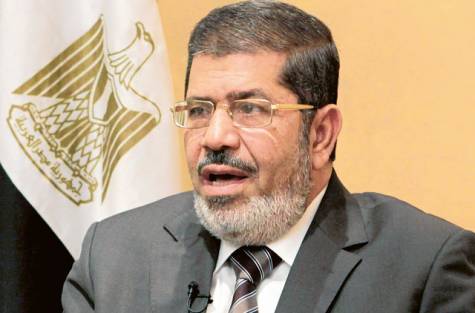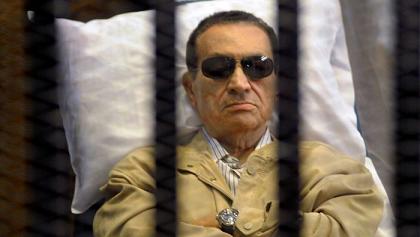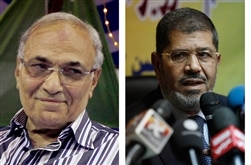Egyptians are to cast their ballots on Saturday in a divisive runoff between former President Hosni Mubarak-era symbol and the Muslim Brotherhood candidate.
Egyptians are to cast their ballots on Saturday in a divisive runoff between former President Hosni Mubarak-era symbol and the Muslim Brotherhood candidate.
cast their ballots on Saturday in a divisive runoff between former President Hosni Mubarak-era symbol and the Muslim Brotherhood candidate.
The vote is braced for controversial ruling by the Supreme Constitutional Court, which will examine the constitutionality of the political isolation law which bars senior Mubarak era officials from running for public office.
The election pits former premier Ahmed Shafiq, and Brotherhood’s Mohammed Mursi, who came ahead with 24.7 percent, against Shafiq's 23.6 percent, in the first round of voting in May, which saw 13 candidates compete for the top job.
The race has polarized the nation between those who fear a return to the old regime under Shafiq's leadership and those who oppose the Brotherhood.
Shafiq is running on a tough law-and-order platform, against Mursi, whose movement has vowed to uphold the goals of the uprising that propelled it to the forefront of Egyptian politics.
LAST DAYS OF CAMPAIGN  In the final days of campaigning, Mursi has pledged that Egypt under his leadership would be inclusive, as he courts secular and Christian voters.
In the final days of campaigning, Mursi has pledged that Egypt under his leadership would be inclusive, as he courts secular and Christian voters.
He told reporters on Wednesday that his presidential institution would "include all forces, presidential candidates, women, Salafis and our Coptic brothers."
He pledged to end "discrimination against any Egyptian based on religion, ethnicity or gender."
For his part, Shafiq, who was an air force chief, accused the Brotherhood of violence during last year's uprising and of arson attacks against his campaign headquarters.
accused the Brotherhood of violence during last year's uprising and of arson attacks against his campaign headquarters.
He said a victory for the Islamic movement would bring Egypt "back to the dark ages" but said he was “ready to appoint an Islamist vice president.”
On the other hand, the race is threatened by a hearing in which the Supreme Constitutional Court will examine the constitutionality of the political isolation law.
The legislation, if approved, could bar Shafiq from continuing as a candidate, nullifying his votes in the first round and requiring a new election, AFP judicial sources said.
However, it is not clear whether the court will rule in advance of Saturday and Sunday's election.
 Mubarak and his interior minister Habib al-Adly were sentenced to life in prison on June 2 for failing to prevent the deaths, but six security commanders were acquitted over the killings of demonstrators during last year's uprising that left around 850 people dead.
Mubarak and his interior minister Habib al-Adly were sentenced to life in prison on June 2 for failing to prevent the deaths, but six security commanders were acquitted over the killings of demonstrators during last year's uprising that left around 850 people dead.
Mubarak’s two sons, Gamal and Alaa, were also acquitted by the court.
The ruling sparked outrage, with protesters who took to the streets furious that no one had been found directly guilty of killing the protesters.
